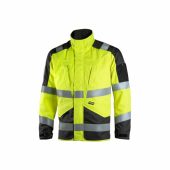Introduction
In the ever-evolving landscape of small and medium-sized businesses (SMBs), ensuring a reliable and high-quality supply chain is paramount for sustained growth and success. Supplier verification, often overlooked, plays a crucial role in safeguarding businesses against risks associated with unreliable vendors. As organizations strive to navigate complex regulations and economic challenges, understanding the importance of robust source identification processes becomes essential. This article explores the significance of supplier verification, outlining its benefits and providing practical insights for SMBs looking to strengthen their supplier relationships.
What does source identification mean?
Usually, a company can’t make the raw materials it needs and the finished goods it sells at the same time. A business should get things from other people, also known as sellers or vendors, in order to make more money. But before your company signs a deal with a provider, it needs to do some study.
The process of making sure that a seller your company wants to work with verification, which is also called vendor validation. You need to make sure that your providers follow the rules if your business has to follow certain regulations or standards.
First confirmation
A lot of small business owners and managers find it hard to pick the right supply chain partners to work with. You need to find vendors who can make the products you need in large quantities and at a price that is competitive. You also need to make sure that the vendors are who they say they are.
Good source identification will keep your business safe from:
- Scammers who sell goods
- Unpleasant shocks when companies you already work with shut down
- Sellers who can’t meet your needs
- Sellers who don’t follow safety rules or other legally required rules
Verifying the supplier doesn’t get rid of the problems listed above. However, it can help you lower the risk you face.
Verification going on
Once you start working with a supply chain partner, you still need to do some research on them. Verification of the seller should happen all the time as long as you work together. If the owner, employees, location, or other factors of a company you work with change, it could have a big effect on your supply chain.
The COVID-19 problem has made it even more important to keep checking suppliers. Due to the global pandemic, more than half of small and medium-sized businesses (52%) will need to check their sources again.
Why it’s important for your business to check suppliers
Your SMB’s supply line is important at every step. Still, it’s smart to pay extra attention to the start of the trip. Verifying your suppliers is one of the first things your business should do to start making money. Your small business may have a great idea for a product that will sell a lot of copies. You might have the best people working together to make your product, sell it to customers, fill orders, and give great customer service. But the whole supply chain falls apart if your company can’t keep good ties with the vendors that help make that product in the first place.
But if your SMB has the right source evaluation method, it can give it an edge over its competitors. Lowering the risk in the supply chain can help keep costs down, boost growth, and raise total profits.
Checklist for Verifying the Supplier
What every business does for supplier identification management is a little different. But before you sign a contract with a new seller or supplier, you should make sure of some simple things, like:
- Name of the business and its address
- Articles of incorporation
- Tax information
- Business licenses
- Credentials
- Permits
- Other things related to ownership.
- Information on how to get in touch (email, phone numbers, etc.)
- Solutions for insurance and fraud protection
Your proof plan may have more steps than one, depending on the type of business you run. One example is that the companies you hire might have to follow certain rules and standards for making. Among these are Customer Due Diligence checks like
- Know Your Customer (KYC)
- Money Laundering (AML)
- Know Your Business (KYB)
A detailed check of the provider can take a lot of time and cost a lot of money. A lot of the time, the process takes at least 40 hours of careful study. And the whole process of training a new partner could take your company up to 390 hours.
Making the process of checking suppliers easier
Demands for supplier verification can have a big effect on your bottom line. There is a chance that small businesses will be hurt in this area. About 40% of small and medium-sized businesses (SMBs) only use search engines to look for vendors, which can be time-consuming and not always reliable.
Your business can save time and money by making it easier to check suppliers and handle them. Still, sometimes even the answers can be too much to handle. There are a lot of small businesses that need to use more than one piece of small business software to get the job done.
The Markaaz Directory makes it easier for your small business to find providers, keep an eye on them, and pay them all from one place. With Markaaz, you have endless access to
- There are already more than 119 million pre-verified SMBs, and by the end of the year, there should be more than 300 million.
- Suppliers that have been checked out thoroughly, including name verification, Know Your Customer (KYC), and Know Your Business (KYB) checks.
- Equifax drives business credit scores and source risk assessments.
To make things even easier, the Markaaz Directory can do more than just make the process of checking out suppliers easier. The advanced business listing service can also help your small business with its regular needs to check the credentials of its suppliers.
The Markaaz Directory lets you keep an eye on a list of sellers and clients every month. The tracking feature is especially helpful right now, when the COVID-19 virus is making things harder for small businesses around the world.
Conclusion
In conclusion, effective supplier verification is not just a regulatory requirement; it is a strategic imperative that can significantly enhance the resilience and competitiveness of small and medium-sized businesses. By implementing comprehensive verification processes, SMBs can mitigate risks, maintain quality standards, and foster trust with their partners. Utilizing advanced tools like the Markaaz Directory can streamline these efforts, enabling businesses to focus on growth and innovation. As the backbone of the global economy, SMBs must embrace supplier verification to thrive in a challenging marketplace and secure their future success.

















